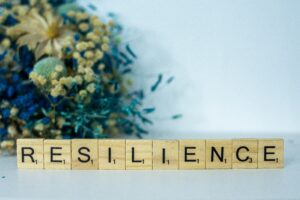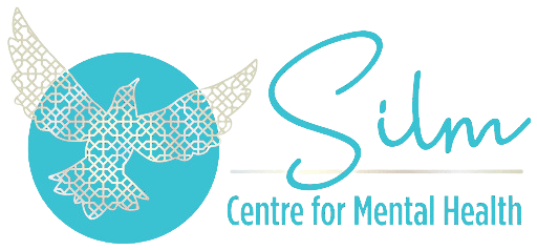Refilling Your Cup & Thriving Through Adversity: The Interconnectedness Between Self-Care & Resilience to Promote Wellness
By Monica Aguilar B.A, Clinical Associate at Silm Centre for Mental Health
If you’re reading this, up until this point, I’m sure you’ve heard of the words self-care and resilience many times, so what’s it to you?
Well, we know that life is filled with responsibilities and struggles. Even if you’re optimistic, you know this to be true if you are living a human life. With the ever-growing demands of work, social life, and daily life in general, taking time to care for yourself can seem daunting, and also easy to keep pushing down our list of things to do. However, did you know that engaging in self-care actually helps cultivate resilience?
In this post, we’ll explore the connection between self-care and resilience and how you can use these concepts to promote wellness in your life.
 What are Self-Care and Resilience?
What are Self-Care and Resilience?
Yes, you’ve likely heard these terms before, but what do they really mean?
These days self-care has become a buzzword. With that, it’s important to note that self-care and self-soothing are different terms. Although there may be some overlap, they should not be confused.
Self-soothe
Self-soothing refers to helping your body reset by using strategies in times of stress to reduce overwhelm (Nash, 2022). It is important for us to do, however, it should be carried out in the short term in times of high stress and not on a daily basis as our only tool. Some examples of self-soothing include:
- Taking a bubble bath

- Listening to your favourite music
- Lighting a scented candle, using an oil diffuser, or incense
- Getting up to stretch for five minutes
Self-care
Self-care is the act of doing things that help you function optimally and improve your mental and physical health (National Institute of Mental Health, 2022). This can include doing enjoyable things or things that make you feel better through activities you regularly do or that you’re trying for the first time (CAMH, 2019). Taking care of yourself does not need to be a huge act of service to yourself. It can also be small day-to-day acts that make a difference in the long run (National Institute of Mental Health, 2022). Self-care can be seen as a lifelong practice, one that can create a sense of personal oasis when incorporated into your routine. While everyone’s journey toward self-care will be unique, the results often include positive change and adaptability (Richards, 2013).
Pursuing self-care can involve wellness and balance in all aspects of your life. Here are some examples (National Institute of Mental Health, 2022; CAMH, 2019):
- Exercise: regular physical activity such as walking, running, biking, hiking, etc. for at least 30 minutes a day.
- Nutrition: eat healthy, regular meals and hydrate. Include fruits and vegetables in your diet, try not to skip meals, limit fast-food consumption, and drink plenty of water.
- Sleep: make resting a priority, aim for seven to nine hours of sleep each night, stick to a schedule, and reduce your exposure to blue light from devices/screens that make it difficult to fall asleep.
- Relaxation: allow yourself to calm your nervous system. For example, this can include deep breathing, progressive muscle relaxation, enjoying a leisurely walk in nature, or journaling.
- Connection: spend time with people who provide you with emotional or practical support. Connect with things that provide you with fulfillment, meaning, and enjoyment, such as cultural/community activities, meditation, or prayer.
Resilience
 Resilience doesn’t mean a person will not experience challenges or distress – it’s quite the opposite (American Psychological Association, 2020). Resilience refers to the capacity and process of overcoming stress and adversity in an adaptive manner that maintains normal functioning (i.e., physically and psychologically; Wu et al., 2013).
Resilience doesn’t mean a person will not experience challenges or distress – it’s quite the opposite (American Psychological Association, 2020). Resilience refers to the capacity and process of overcoming stress and adversity in an adaptive manner that maintains normal functioning (i.e., physically and psychologically; Wu et al., 2013).
Although adversity can be painful, it doesn’t have to dictate the course of your life. There are many areas that you can influence, adapt to, and enhance. This is where resilience comes in. Building resilience can help you navigate challenging circumstances and enable you to develop and make improvements in your life. As you become more resilient, you can empower yourself to grow as an individual along the way (American Psychological Association, 2020).
Although certain factors can increase an individual’s resilience, it is not exclusively a personality trait possessed only by some. Resilience encompasses thoughts and behaviours that are accessible for anyone to learn and cultivate. You can think of it like training a muscle, it takes time and intentionality.
Increasing your capacity for resilience can also involve wellness and balance in all aspects of your life. Here are some examples (Americal Psychological Association, 2020):
- Connection: prioritize important relationships, and spend time with supportive people, those who validate your feelings. Connection can also mean joining a community that resonates with you offers you support and hope, or makes you feel joyful in some way.
- Wellness: practice self-care by ensuring that you sleep, eat, and exercise adequately which will help you strengthen your body to adapt to stress. Practice mindfulness to allow you to embrace the positive aspects of your life.
- Purpose: move toward your goals by doing something regularly that helps you get closer to them. Help others by volunteering or supporting a friend in need.
- Healthy thinking: work on identifying unhelpful thinking patterns, acceptance and change, learn from previous experiences, and practice self-compassion.
- Seeking help: you’re only one person, remember to reach out for help or support if you need it, and consider a licensed mental health professional as well.
Two Sides of the Same Coin
 Already you can see the similarities between self-care and resilience, they both may seem intimidating and difficult to practice. However, just like anything else, these are skills that can be developed over time. You can start small and gradually build up your habits.
Already you can see the similarities between self-care and resilience, they both may seem intimidating and difficult to practice. However, just like anything else, these are skills that can be developed over time. You can start small and gradually build up your habits.
So how are they connected?
Cultivating resilience involves all self-care practices. By practicing self-care, you are increasing your capacity for resilience (American Psychological Association, 2009). If you engage in self-care practices, you have the resources needed to cope with stress and adversity because you are participating in activities that maintain your physical and mental health.
The next time you think about self-care, think of this connection in promoting wellness in your life. Refill your cup so that you can thrive in adversity. Everything is easier said than done, and it is difficult to practice these skills, and that’s ok. You’ve made it through every day up until this point, haven’t you? You got this!
“The oak fought the wind and was broken, the willow bent when it must and survived.” – Robert Jordan
References
- American Psychological Association. (2009). An action plan for self care. American Psychological Association. https://www.apaservices.org/practice/good-practice/Spring09-SelfCare.pdf?_ga=2.15104561.64341643.1676230029-31879786.1652308745
- American Psychological Association. (2020). Building your resilience. American Psychological Association. https://www.apa.org/topics/resilience/building-your-resilience
- CAMH. (2019). Self care information [Infographic]. Camh.ca. https://www.camh.ca/-/media/images/camhxhbc/game-changers-self-care-infosheet.pdf
- National Institute of Mental Health. (2022). Caring for your mental health. U.S. Department of Health and Human Services, National Institutes of Health. https://www.nimh.nih.gov/health/topics/caring-for-your-mental-health#:~:text=Self%2Dcare%20means%20taking%20the,illness%2C%20and%20increase%20your%20energy
- Nash, J. (2022, January 21). 24 best self-soothing techniques and strategies for adults. Positive Psychology. https://positivepsychology.com/self-soothing/#:~:text=References-,What%20Is%20Self%2DSoothing%20According%20to%20Psychology%3F,a%20tub%20of%20ice%20cream.
- Richards, K. (2013). Self-care is a lifelong journey. Nursing Economics, 31(4), 198
- Wu, G., Feder, A., Cohen, H., Kim, J. J., Calderon, S., Charney, D. S., & Mathé, A. A. (2013). Understanding resilience. Frontiers in behavioral neuroscience, 7, 10. https://doi.org/10.3389/fnbeh.2013.00010


